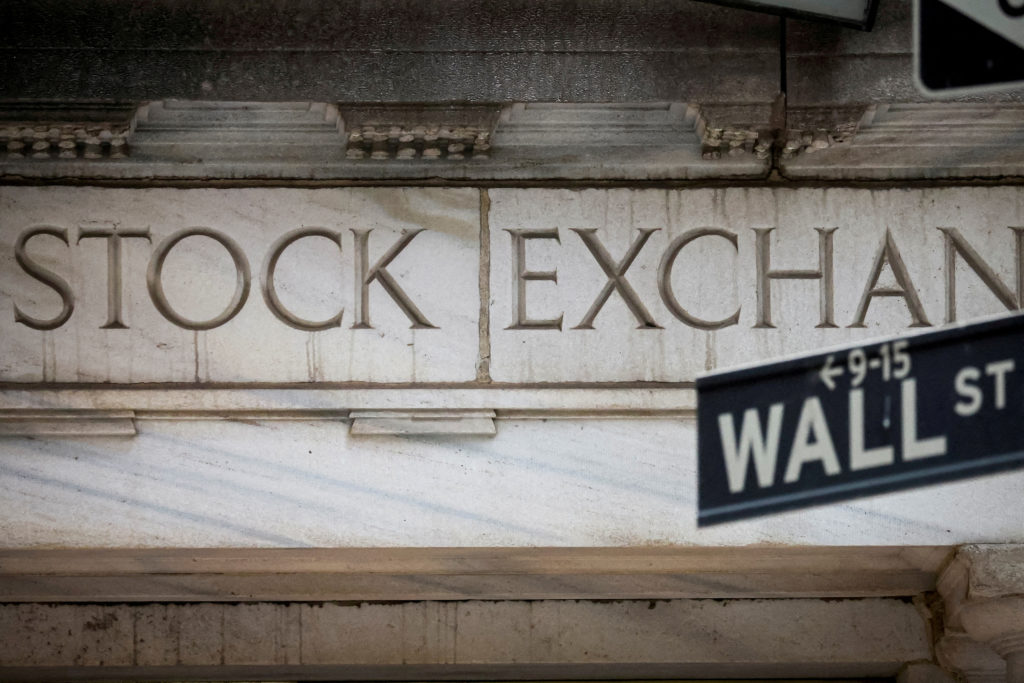
Stock Market Plummets Following Trump's Significant Tariff Revelation
The U.S. stock market experienced a startling decline, spurred by former President Donald Trump's recent tariff announcement. In a dramatic turn of events, investors reacted with alarm, leading to a marked downturn across major indices. This unforeseen volatility underscores the profound impact political decisions can have on economic stability.
A Closer Look at the Market Reaction
Following the announcement, the stock market reacted swiftly, mirroring the uncertainty and apprehension that stakeholders felt worldwide. The Dow Jones Industrial Average, alongside the S&P 500 and Nasdaq, witnessed significant drops. This rapid devaluation illuminated the market's sensitivity to global trade policies.
The sudden announcement of tariffs on goods from China, Mexico, and European nations fueled a wave of concern. Investors worried about the ripple effects on international trade relations and the potential for a prolonged economic war. The ensuing panic contributed to a sharp sell-off, exacerbating losses and leaving financial analysts scrambling to assess the long-term implications.
The Impact on Key Sectors
Manufacturing and Technology were among the hardest-hit sectors following Trump's tariff news. Companies reliant on cross-border supply chains faced immediate pressure as the prospect of increased production costs loomed large. Manufacturing giants, already grappling with COVID-19 disruptions, now faced the additional challenge of adjusting to new economic variables.
In the technology sector, fears of restricted access to critical components and disrupted logistics only added to investor anxiety. With technology companies forming the backbone of the modern economy, their instability could have far-reaching consequences on global markets in the months to come.
Implications for Global Trade Relations
The tariff announcement reignited tensions between the United States and its global trade partners. This renewed animosity threatens to derail previous diplomatic efforts aimed at fostering collaborative economic growth. Experts fear that prolonged trade conflicts could stall recovery efforts from the pandemic-induced economic downturn.
In particular, the relationship with China remains precarious. As two of the world's largest economies, heightened tensions between the U.S. and China could catalyze a cascade of protectionist measures, further destabilizing global markets. The repercussions of such policies could resonate through the global economy, suffocating emerging markets and stymieing international trade growth.
Investor Confidence and Economic Growth
The volatility caused by the tariff announcement has inevitably shaken investor confidence. History shows that uncertainty can be especially detrimental to investment sentiment. Businesses may hesitate to commit capital to long-term projects, fearing unpredictable shifts in trade policies.
Reduced investor confidence often leads to decreased economic growth. As firms scale back expenditures, job creation slows, consumer spending wanes, and GDP growth stalls. The resultant economic stagnation puts additional stress on government fiscal measures and economic recovery plans.
Strategies for Navigating Market Uncertainty
Faced with such unpredictability, investors and companies must adopt strategic measures to navigate these uncertain waters. Diversification remains a critical tactic for mitigating risk in the face of fluctuating market conditions. By spreading investments across asset classes and geographical regions, stakeholders can buffer portfolios against localized economic shocks.
Additionally, businesses should prioritize resiliency by reinforcing supply chain flexibility. Expanding supplier networks and exploring nearshore manufacturing options can help companies avoid potential bottlenecks and align better with evolving trade landscapes.
The Role of Government Policy in Restoring Stability
In times of market turmoil, the role of government policy cannot be overstated. Measures such as fiscal stimulus, monetary support, and diplomatic engagement can provide much-needed assurances to both businesses and investors. Negotiating peaceful trade resolutions and fostering international cooperation are essential steps towards regaining market equilibrium.
The Federal Reserve, in particular, can play a crucial role in stabilizing the market by adjusting interest rates and ensuring liquidity. Such monetary interventions can boost market confidence and ease financial strains, fostering a more conducive environment for economic recovery.
Conclusion: The Path Forward
The tumultuous reaction to Trump's tariff announcement serves as a stark reminder of the interconnectedness of modern economies and the profound impact political actions can have on financial markets. As the dust settles, it is crucial for policymakers, businesses, and investors alike to work collaboratively towards minimizing risks and promoting sustainable growth.
While challenges remain, strategic planning, resilient practices, and diplomatic engagement offer a pathway to mitigating the fallout from tariff-induced uncertainties. By addressing these challenges head-on, stakeholders can help restore confidence and support a more stable economic outlook for the future.

